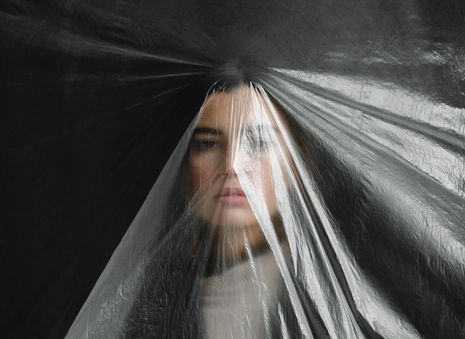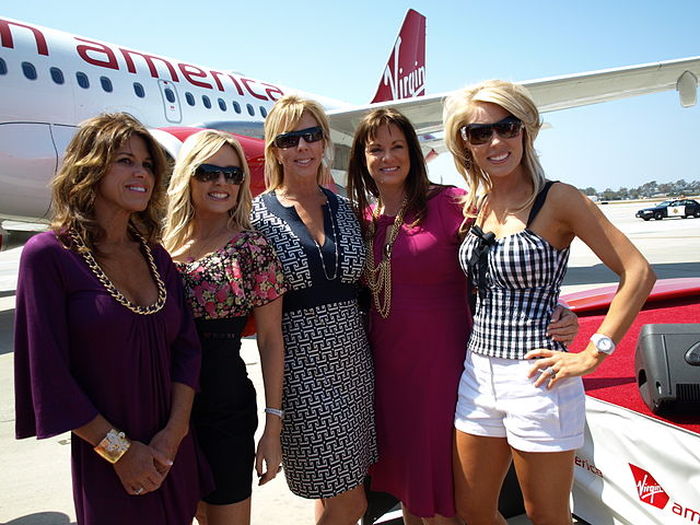The destructive parody of feminism in TV
Isabel Dempsey seeks better representation of the young female activist in TV culture, and offers the opinion that it is often a performative technique centred in parodic characters

There she goes again. Fuming about feminism, complaining about class struggles, or insisting that we need to do more to stop this so-called environmental apocalypse that we’re apparently pushing ourselves towards. Isn’t it cute that she cares so much? Isn’t it silly? So often the activist pursuits and struggles of characters, particularly young women in film and TV, are made a mockery of.
Rather depressingly this thought came, as they often do, from watching an episode of Bridgerton. From the very first episode of the first season, I — like so many others — immediately found a love and connection with Eloise. The only character with no interest in marriage, or performing for the male gaze. She doesn’t desire to go to balls, to settle down but to travel the world, see new sights, learn new things, and expand her horizons.
“On the one hand, I relate to them, but on the other, I feel like I’m being made fun of”
And yet, however much I love Eloise, throughout the two seasons, her character gradually began to grate on me. She sounded like a broken record, repeating the same ideas over and over until it felt like there was nothing more to her character other than some vague feminist desire. If all she speaks about is her gender, then she ironically is reduced to her gender alone.
Look, I’m not one to critique. If I could talk about women all day and treat my English degree like a gender studies course, I would. In fact, just like Eloise, I don’t really shut up about feminism either. But there’s something about the way the show reduces her to a two-dimensional feminist stereotype that irks me. And Bridgerton isn’t the only victim.
Though it is less immediately popular, the sitcom One Day at a Time treats its spunky young female activist, Elena, in a similarly concerning manner. She’s very much a modern-day Eloise Bridgerton — constantly fighting new causes, calling people out, and looking to make a better world. But the lesson the show appears to teach her (and us) isn’t: yes, adopt that passion, we’ve got to work hard even at a minor level to make a positive difference. Rather her attempts at activism are made the butt of the joke. She must learn that her small actions are largely meaningless and she should just go be a “normal” teenager instead.
Obviously, her imperfection as a young activist is an important idea to explore. At times we all get carried away by an ultimately meaningless spiel on Twitter and pushing political correctness to ridiculous ends. But the show’s focus on these objectively silly extremes works to undermine serious real-world activist endeavours; for example, when she dressed up as Greta Thunberg for Halloween to confront unsuspecting trick or treaters about the climate crisis, lines like ‘damage will be irreversible by 2030’ being met with a haunting burst of canned laughter. No one understands the costume and she’s laughed off as a social reject, the “nerd” of the show.
“They’re never the protagonist, the figure of femininity”
These characters then become a parody of themselves. On the one hand, I relate to them, but on the other, I feel like I’m being made fun of. They’re never the protagonist, the figure of femininity. We root for them, but maybe wish they were just a bit more like the show’s star. However much they’re presented as loveable, they’re also presented as the underdog, the outcast, a girl not like other girls. Surely it’s impossible for most girls, “normal girls”, to want to dedicate their lives to improving the world. Their activism isn’t the main plot but a fun sub-plot, suggesting that this is how activism should be treated in real life. It’s a quirky thing for select characters to act out on the sidelines while the rest of us go on with our lives. And in this way activism as a concept is diminished and belittled — you want to be the romantic hero, not the failing funny feminist friend.
Of course, no one can dedicate every second of their waking life to an activist cause. We all need balance. We all need complexities and nuance. And maybe that’s where these shows could remedy their mistakes. There shouldn’t be activist and non-activist characters, (the quirky best friend and the protagonist) — rather shouldn’t everyone be a little bit of both?
Individuals, living their own, unique, independent lives, but individuals who also care about wider world issues, issues that could then be taken and dealt with seriously in these shows. If not, then while the activists preach to their cast of characters, the show itself twists their words, belittling the very serious concerns they try and fail to effectively address.
 News / SU reluctantly registers controversial women’s soc18 December 2025
News / SU reluctantly registers controversial women’s soc18 December 2025 Features / Should I stay or should I go? Cambridge students and alumni reflect on how their memories stay with them15 December 2025
Features / Should I stay or should I go? Cambridge students and alumni reflect on how their memories stay with them15 December 2025 News / Dons warn PM about Vet School closure16 December 2025
News / Dons warn PM about Vet School closure16 December 2025 News / Cambridge study finds students learn better with notes than AI13 December 2025
News / Cambridge study finds students learn better with notes than AI13 December 2025 News / Uni registers controversial new women’s society28 November 2025
News / Uni registers controversial new women’s society28 November 2025










